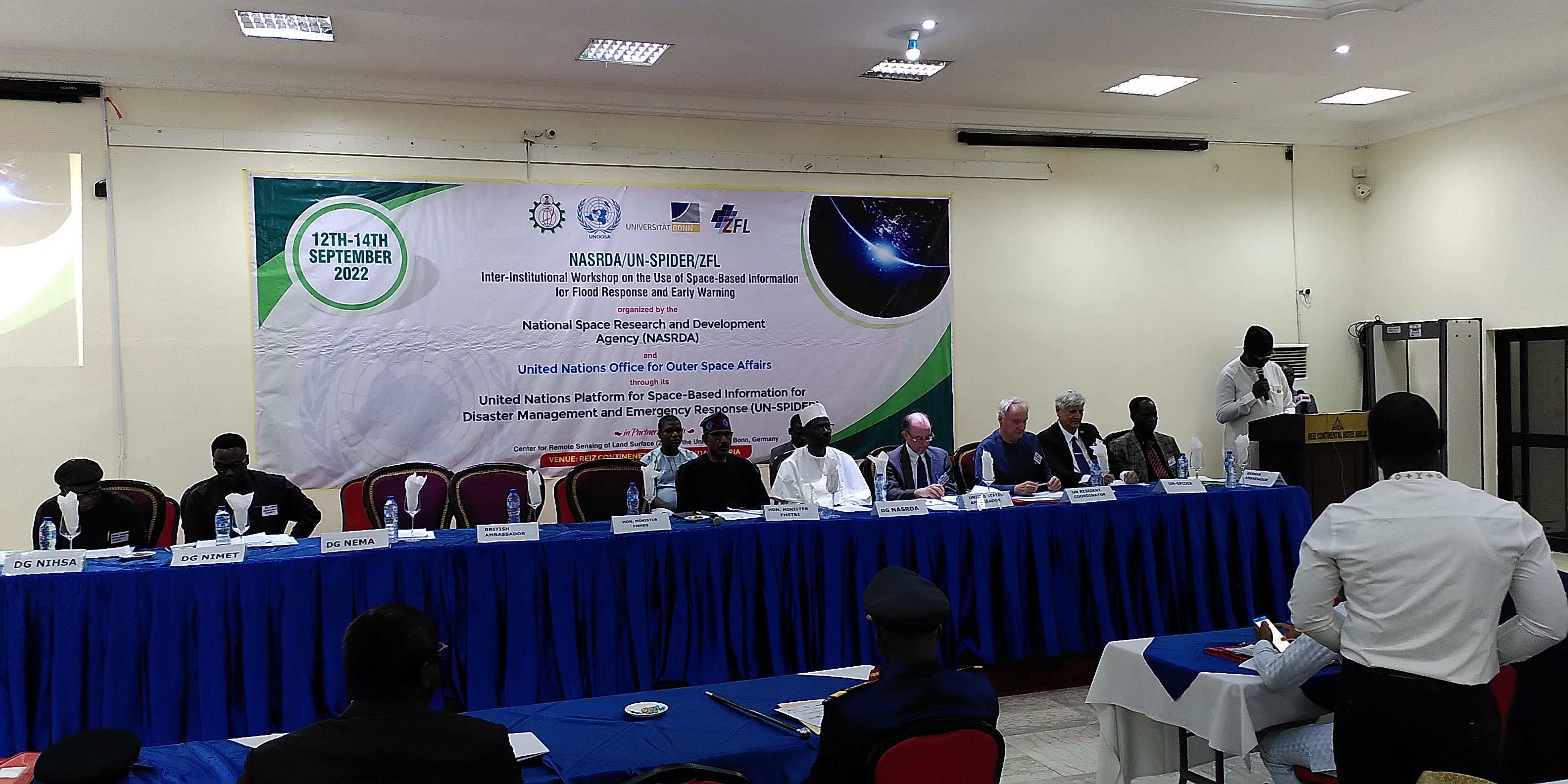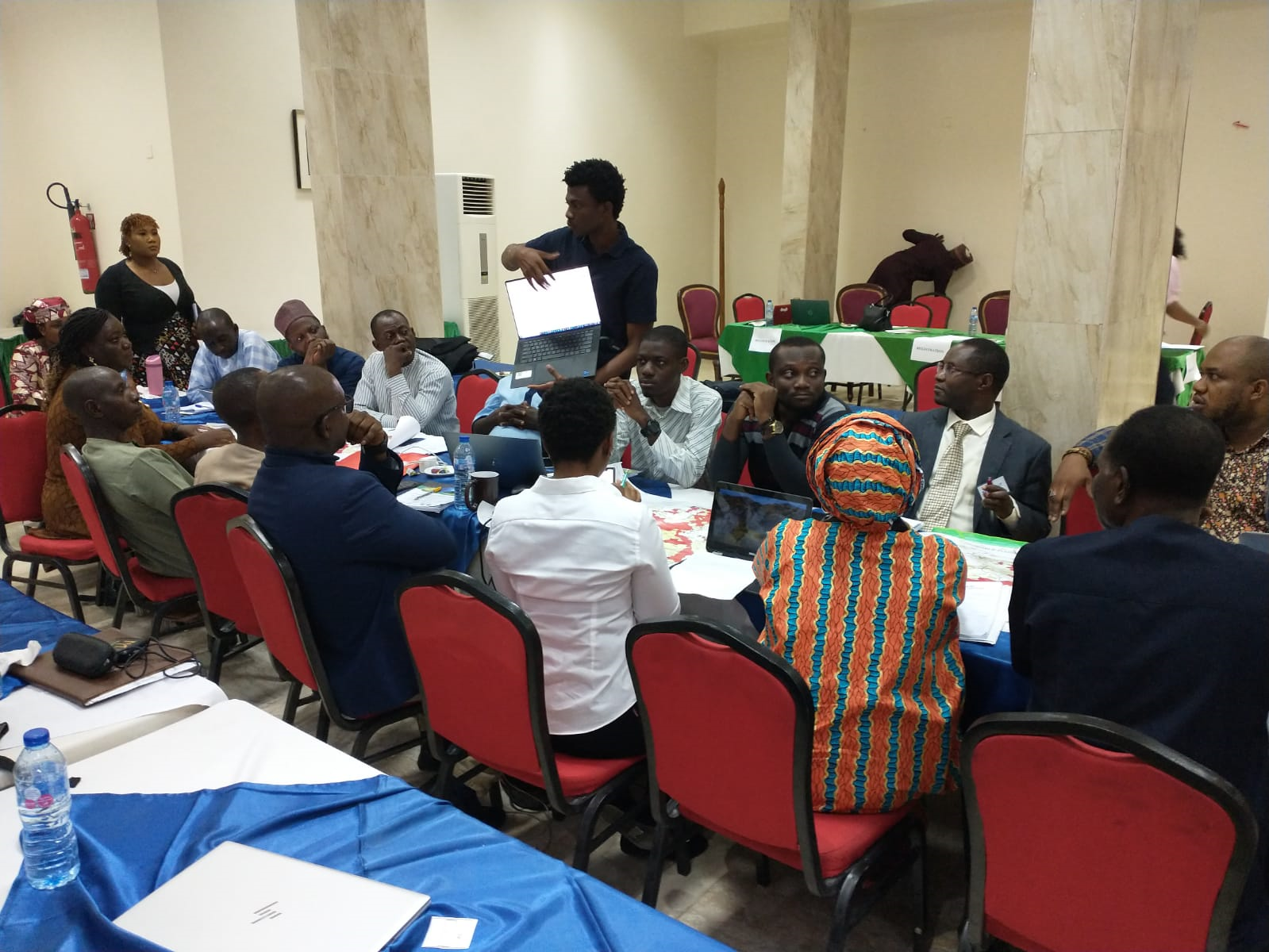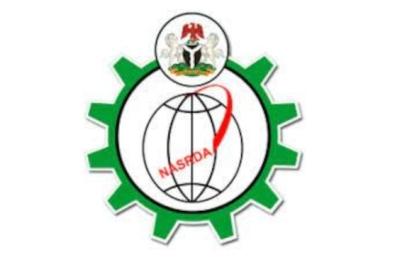The National Space Research and Development Agency (NASRDA), UN-SPIDER and the Centre for Remote Sensing of Land Surfaces (ZFL) of the University of Bonn organized a 3-day interinstitutional workshop to improve disaster preparedness in case of very large floods in Nigeria. The workshop, held in Abuja from 12 to 14 September 2022, addressed the use of space-based information provided by emergency mechanisms such as the International Charter Space and Major Disasters and services by the Copernicus programme such as the Global Flood Awareness System (GLOFAS) to take note of potential floods.
The Organizing Committee also included the National Emergency Management Agency of Nigeria (NEMA), the Nigeria Hydrological Services Agency (NIHSA), the Nigerian Meteorological Agency (NiMet) and the National Disaster Management Organization of Ghana (NADMO). The workshop brought together more than one hundred participants from several government agencies, UN agencies and other stakeholders, and was inaugurated by the Federal Minister of Science, Technology and Innovation. It included presentations, discussion sessions, and a two-day simulation on the use of an Emergency Operations Centre (EOC) or Command Centre to coordinate flood response efforts.

The workshop included a simulated activation of the International Charter Space and Major Disasters, which facilitated the use of its Charter Mapper to speed up to the processing of satellite imagery. Experts from NASRDA acted as project managers, while experts from ZFL and NADMO contributed as Value-Added Providers during this simulated activation. The simulation benefitted from the support of experts from ESA in the role of the International Charter.
Participants became aware of the types of space-based information and services that may be available to contribute to disaster response efforts in case of large floods and recognized the usefulness of working within the setting of an EOC with its internal information system to take note of impacts triggered by floods, and to coordinate the provision of humanitarian assistance, the restoration of lifelines and critical infrastructure, and to generate reports of impacts and measures implemented to response to those impacts.


